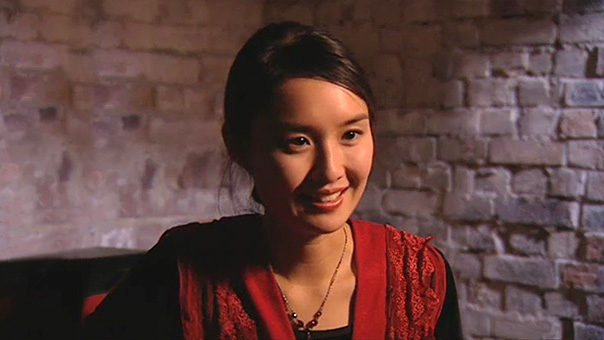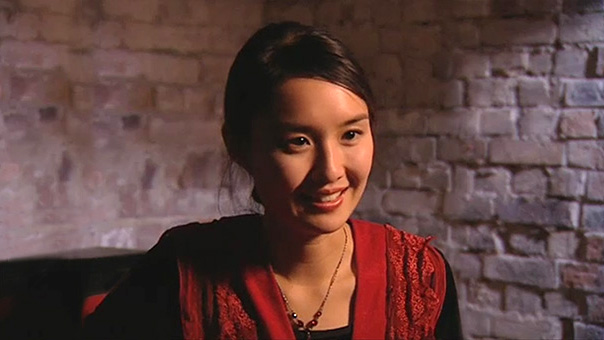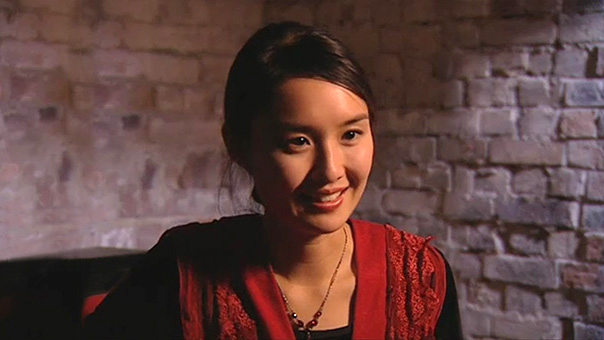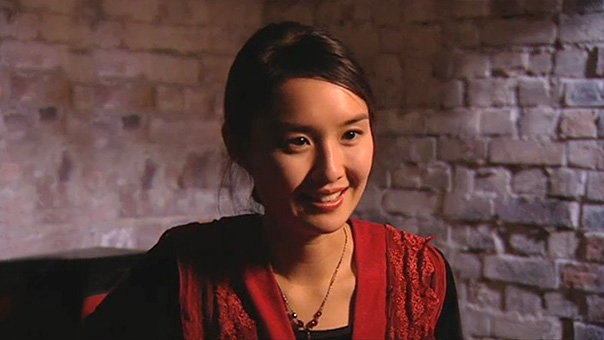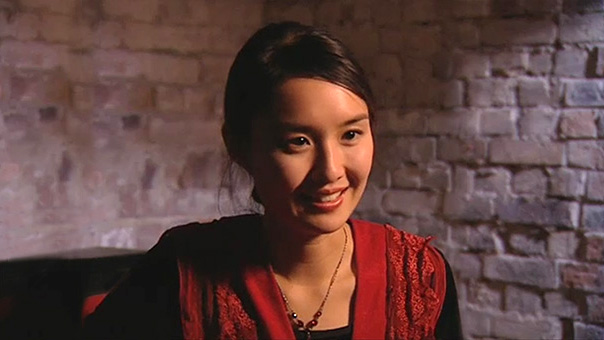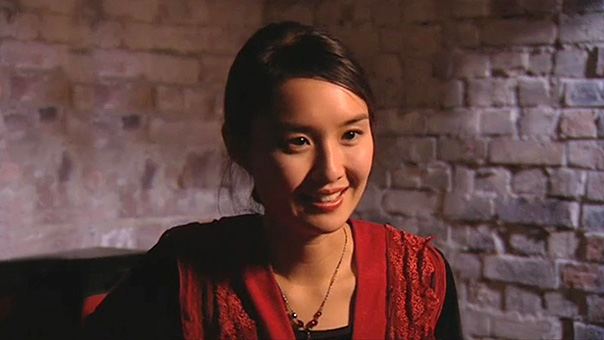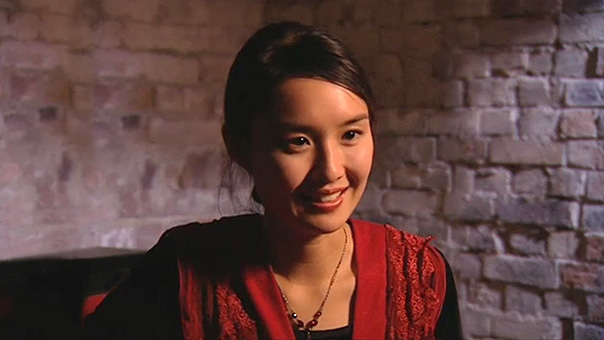Interviewer, Christine McGuigan: How did you structure Unpolished Gem? Did you follow particular story-telling principles?
Alice Pung: To be honest I wouldn't have known what story-telling principles were when I wrote Unpolished Gem. I'm not a trained writer. You know, I didn't do a media communications course or anything. The way Unpolished Gem came about was I just liked writing short stories. I wrote many, many short stories about my family, most of which, you know,
I keep to myself. And how I structured it was just, every time a short story emerged I would get it down. Because I don't
have, what do you call it, the wisdom of perspective - I'm still quite young, I'm 27 - I couldn't write like Arnold Zable
or Raimond Gaita, you know, looking back on my childhood. I had to write it there and then, you know, exactly the way I felt
and how I saw the world at eight, at 14, at 16, at 20, and that's how the stories emerged.
Christine: How did you choose the stories and events that you include in the book?
Alice: I've never been too precious about my work to be honest. 'Unpolished Gem' was much, much larger than it actually is. There
was about another one-third of a book there. And so, my editor and I, we just went through all the stories and took some out
and it didn't feel, I didn't feel like there was a lack. It could have been a very different book depending on what stories
we put in but I think the heart of it would have still been there. So it wouldn't have mattered what anecdotes were in there.
There was a narrative that was running through it about migrant success or a message about that.
Christine: There's a section in the book where you describe a period of your life, just before your final exams, where you are dealing
with negative thoughts and feelings. How difficult was it to expose that vulnerable time?
Alice: To be honest, they were difficult chapters to write but it wasn't difficult to expose those chapters, because I'd exposed
my mother's vulnerability - she'd had extreme difficulty learning English, she, you know, was very lonely and very depressed.
And you can't write about other people in that way unless you're also honest about yourself. A lot of people assumed that
it was because, you know, your mother was going through a very hard time, she was on Zoloft, you had younger siblings to look
after, your grandmother had a stroke, that was why you tunnelled into this, you know, nadir of depression. And it probably,
it probably was that, but it was also other reasons as well. And I talk a lot about the migrant narrative of success which
isn't particularly a migrant one. Everyone is driven towards success. That's what we teach our young people these days, probably
sometimes to their detriment. You know, young people being overly focused on success that they get afraid of failure instead
of just being happy with what they've accomplished. And that was what drove me, that was what spiralled me down. I was so
afraid of failing. Once my mother came to me and sat down. She was very, very down at that point, when I was in Year 12. And
she said 'I can't learn English, I can't even get a factory job without English, so what am I going to do? I'm 40. I have
how many years of life left? What, 30 years of life left, 40 years of life left at this rate we're going. I can't imagine
what I'll do with these 40 years. I can't see the point.' And at 17 that, you don't realise how much that affects you but
it does. You think, well your mother's 40 and if she can't see the point then, geez, if you end up this way at 18, you know,
not having gone to university, just failing everything, you've got how many years of life left? Geez.
